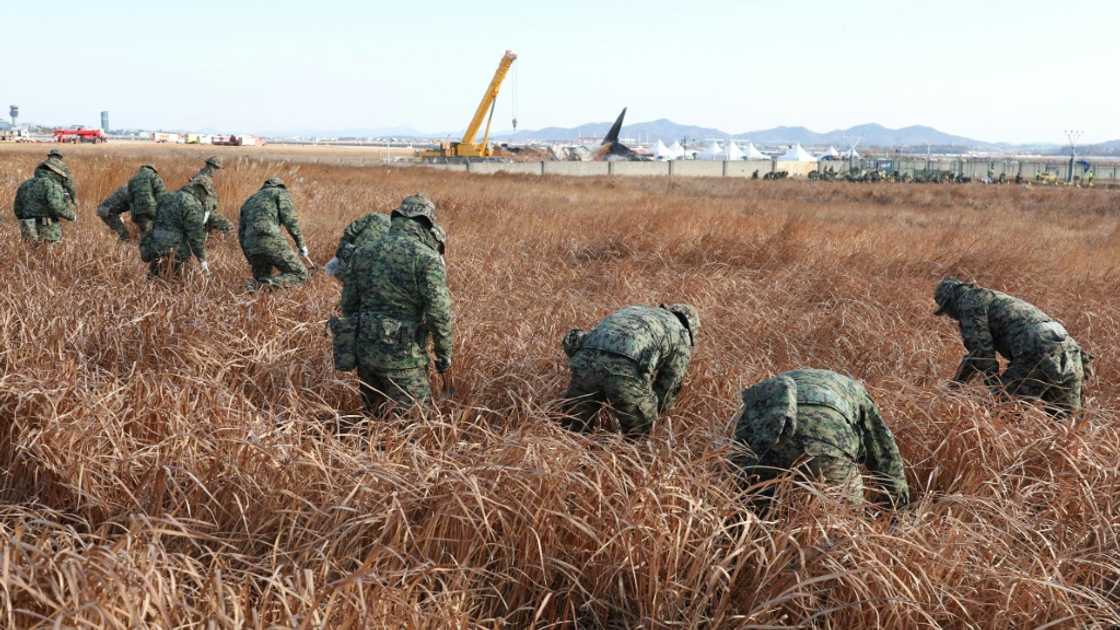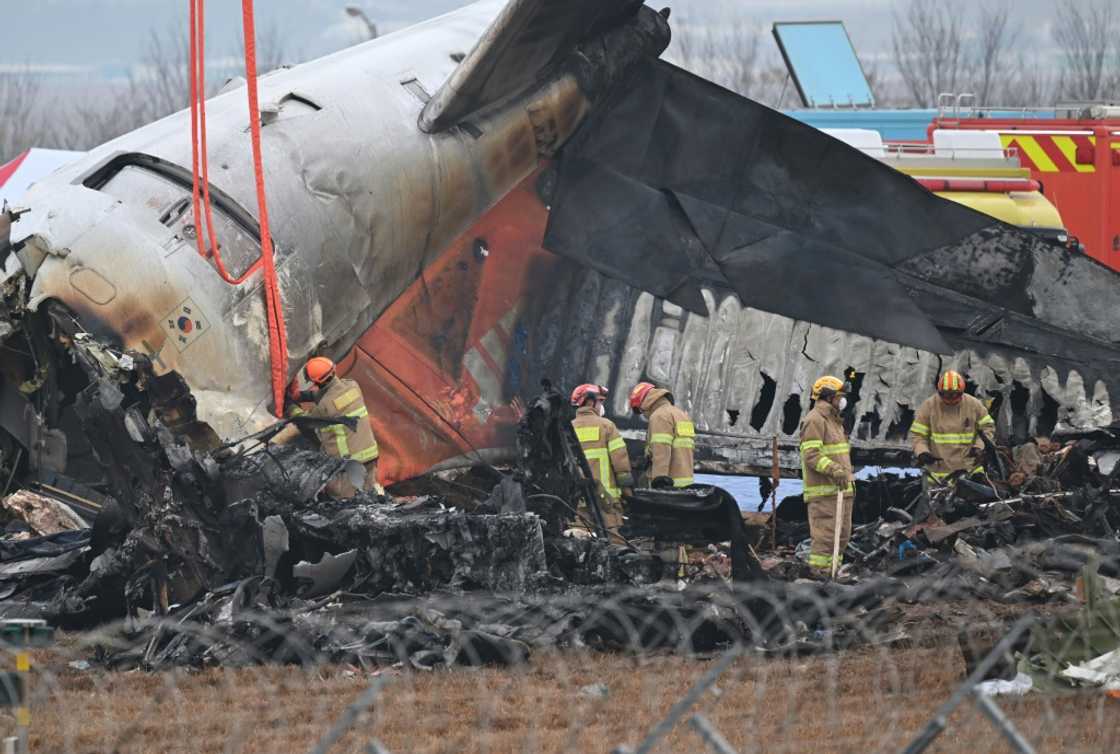
The black boxes containing the flight data and cockpit voice recordings of the crashed Jeju Air flight that resulted in the loss of 179 lives stopped recording four minutes prior to the incident, South Korea's transport ministry announced on Saturday.
On December 29, a Boeing 737-800 was en route from Thailand to Muan, South Korea, with 181 passengers and crew members on board when it landed hard at Muan airport and caught fire after colliding with a concrete barrier.
It was the most devastating air disaster in South Korean history.
"The analysis showed that recordings from the CVR and FDR were not available for the four minutes leading up to the plane's collision with the localiser," the transport ministry said in a statement, referring to the two recording devices.
The localiser is a barrier at the end of the runway that assists with aircraft landings and has been implicated in aggravating the severity of the crash.
South Korean authorities had initially deemed the flight data recorder beyond repair for data recovery, so they sent it to the US National Transportation Safety Board laboratory for further analysis in the United States.
However, it seems that the data storage units containing information about the flight's final hours have experienced data loss, prompting authorities to investigate the circumstances surrounding the incident.
"The investigation into the current accident is expected to be thoroughly examined to determine the source of the data loss," the ministry stated.
South Korean and US investigators are currently investigating the circumstances surrounding the crash, which led to a massive outpouring of national grief, with various memorials established across the country nationwide.
'Committed'
Investigating officials stated that the boxes were essential to their inquiry but also emphasized that they would continue to work towards uncovering the cause of the accident.
"The investigation will be carried out by examining and analyzing various data. The Committee is fully committed to doing its best to accurately determine the cause of the accident," the ministry stated.
Experts suspect that a collision with a bird, malfunctioning landing gear, or the presence of a runway safety barrier may have been contributing factors.
The pilot alerted to the risk of a bird strike before attempting the first landing, but upon the second attempt, the plane crash-landed due to the failure of the landing gear to deploy.

This week, lead investigator Lee Seung-yeol stated to reporters that "feathers were found" in one of the plane's recovered engines, but he noted that a bird strike does not necessarily result in an immediate engine failure.
Law enforcement officials have conducted raids on facilities in Muan on the crash site, a regional aviation office in the southwestern part of the country, and Jeju Air's office in the capital, Seoul.
Regulators also prohibited Jeju Air's top executive from stepping outside the country.
The opposing parties in this case then established a joint task force to investigate the crash, and meanwhile, Transportation Minister Park Sang-woo has offered his resignation this week.
"As the minister responsible for aviation safety, I feel a profound sense of accountability for this calamity," he stated.